[P] Fyi about an earlier article last year: Vivek Ramaswamy: Likely Won’t Sign a Federal Abortion Ban >
[N] I’d like to offer a comment and a couple questions –
Some people desire more freedom for us to make choices rather than make the rule of law our conscience. I don’t know the best way to do that. I don’t want to make prostitution a legalized activity and therefore taxable, but I don’t want to turn into the Puritans with public shaming either (I know those are extreme examples.)
I agree, abortion is murder. And I think Christians were shortsighted about overturning Roe. I could kick myself that I never thought strategically where the battle would jump once it occurred. It’s so obvious in hindsight that it would move back to the states.
One of my concerns as we move into the future is that we may go too hard on legislating morality without changing lives and hearts. We need our society to return to God. We need a moral people, but where do we draw the line to balance this is a huge consideration. One of my concerns is – Are we educated enough to make good choices in rebuilding? I believe Charlie mentioned in his last blogs that this is a very real issue when going forward and that we need to get it right.
Do we really want the federal government in charge of and making all of our laws? How do we live holy but simply?
[A] If I remember correctly, Aristotle asserted that a state (i.e. political entity w/ people and their government), to be and remain properly ordered, cannot be excessively large. Authentic Catholic social teaching covers this under the idea of subsidiarity: governing decisions should be made at the most local level possible. We have a federal government usurping states’ rights, etc. But IDK how that plays into these moral issues. We have a big task ahead to reeducate the people towards moral order.
[S] Yes. Aristotle definitely believed that geographic distance, economic capabilities, and ethnic/ cultural matters made it possible for everyone to “know” everyone else within a Res Publica, based on 1-2 connections. I think he limited it to city-states of 150,000, but I believe modern tech makes room for more than that. IMHO, the smaller colony states are about the right size by geography. I highly recommend the book “Catholic Republic” by Tim Gordon. Aquinas lists Res Publicas as one of the three forms of legitimate government in the eyes of the Church.
In “Catholic Republic” there are 6 concepts found in the Declaration of Independence and the Constitution which are neither found in Protestantism nor Enlightenment thinking, but are only found in Catholic thinkers like Bellarmine, Suarez, and Aquinas. The author presents evidence that some of the Founding Fathers were secretly reading the writings of papists!
[A] Ok, S and N. Sounds like we could start with ourselves and within CORAC. Speaking for myself, educated in a standard public school, I did not receive any of this knowledge as part of my education. WE need to really learn this too! I have read Tim Gordon’s book, and that was my first clue to the scope of the problem and the potential solution.
So…the book list…start with Catholic Republic by Timothy Gordon. What else is foundational?
[P] FYI on the Catholic Republic Book overview: “Some Christians decry the deism of our Founding Fathers, claiming that outright anti-Christian principles lie at the heart of our Declaration of Independence and Constitution, crippling from birth our beloved republic.
Here philosopher Timothy Gordon forcefully disagrees, arguing that while anti-Catholic bias kept them from admitting their reliance on Aristotle, Aquinas, and the early Jesuits, our Protestant and Enlightenment Founding Fathers secretly held Catholic views about politics and nature.
Had they fully adhered to Catholic principles, argues Gordon, the “Catholic republic” that is America from its birth would not today be on the verge of social collapse. The instinctive Catholicism of our Founders would have prevented the cancerous growth of the state, our subsequent loss of liberties, the destruction of families, abortion on demand, the death of free markets, and the horrors of today’s pervasive pagan culture.
In Catholic Republic, Gordon recounts our nation’s clandestine history of publicly repudiating, yet privately relying on, Catholic ideas about politics and nature. At this late hour in the life of the Church and the world, America still can be saved, claims Gordon, if only we soon return to the Catholic principles that are the indispensable foundation of all successful republics.”
[J] The Forerunners of the Reformation – with Dr Scott Hahn > This is a particularly enlightening talk!
[N] I am not an expert at this. I have been concerned about my own ignorance.
You mentioned subsidiarity – what’s the best place to learn more about this foundation? The catechism or a papal document?
I also need to pull out Tim Gordon’s book again. It’s very educational. But I needed help to read it. I am a convert as well as a product of a public school and a college that didn’t highlight philosophy, so I don’t know Aristotle nor much of Aquinas.
Think of me as your sample pupil 😉
[M] Sign me up for that one too.
[J] Ok, also, me!
[E] Me too (or me 4) 😃
[J] Compendium of the Social Doctrine of the Church >
[A] Hey, S! Would you, could you lead us in a study group?
[S] Would love to if I had the attention bandwidth. Rather, I suggest in addition to the book for people to take the online course from the author himself at: timothygordon.com >
[A] Ok. We have a good set of starting points. Thanks, J for the link to the Church document.
[M] Book sounds interesting, and I am definitely going to look into it. I am hoping maybe it is available on Audible, so I can listen as I work on my NRS. Also, the link to Scott Hahn I am definitely going to listen to. I personally do not worry about being “educated enough”. I keep my eyes and ears open and tuned in. I read and learn as much as I can, where I feel called to. I do not worry about trying to learn about every topic in depth. I am not called to be a “Scott Hahn or Tim Gordon”. I am called to be a pupil of them, and I do not worry about getting an “A” on any test. We all have different gifts and talents. I do not think I am going to be called to write or draw up any foundational materials on political matters, but may be called to share survival and homesteading skills. I will happily grow your food, harvest it, process it, and bake or cook your meals from the fruits of my labor, while I pray for my brother or sister to be divinely inspired to write the appropriate documents that will be needed at the appropriate time. That is the beauty of community. I want to surround myself and make these connections now to lighten all of our burdens in times to come. Using the potluck analogy CJ used years ago, we each come to the potluck with different dishes, and together we have a bountiful feast!
[S] Tim’s writing style uses a bit of legalese, and I think his books could use some 2nd editions for easier reading, but the content is all there.
[P] From thehill.com >
[A] And this is why free citizens need a basic education in philosophy according to Aristotle.
[J] Charlie frequently quotes John Adams: “Our Constitution was made only for a moral and religious people. It is wholly inadequate to the government of any other.”
TOPICS
- Basic Education in Politics and Philosophy
- Local Governance
- Subsidiarity
- Social Teachings of the Catholic Church
- Constitution
- Aristotle, Aquinas, Bellarmine
RESOURCES



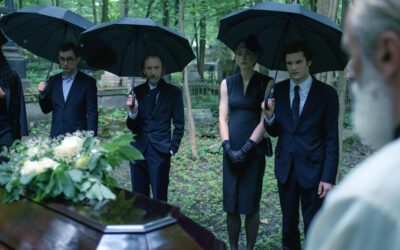


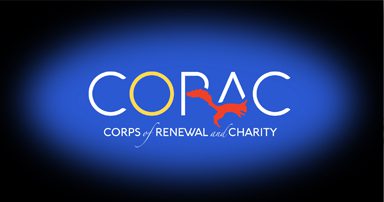

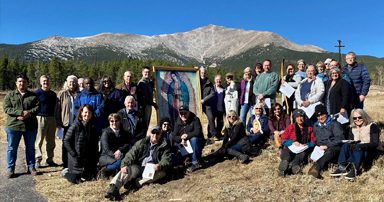
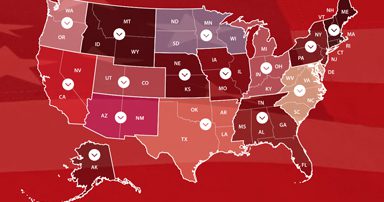



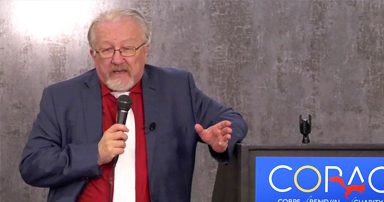







0 Comments